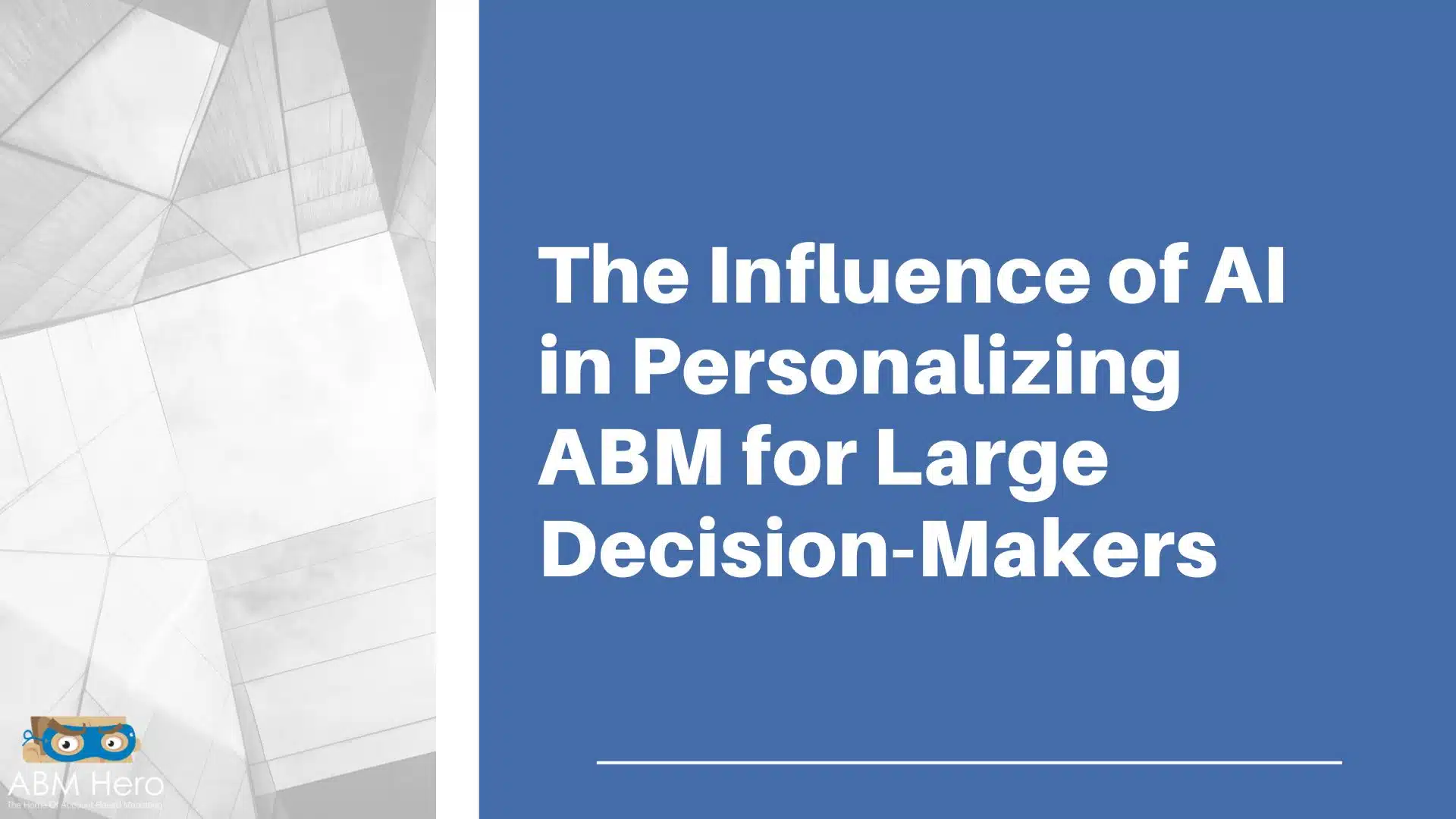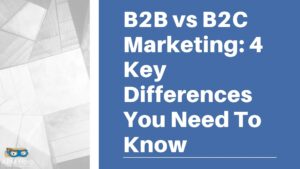Account-based marketing (ABM) is an effective strategy to reach significant decision-makers in the B2B world. However, personalization can be time-consuming and challenging, especially when dealing with large accounts.
It is where Artificial Intelligence (AI) comes in, providing the necessary tools to improve personalization and boost ABM effectiveness.
This blog will explore examples of B2B companies that have successfully used AI to personalize their ABM efforts and improve their marketing results.
Common Personalization Struggles for B2B Companies

B2B companies often need help to pull off an effective personalization strategy when dealing with larger accounts due to several reasons. Here are three common reasons why this is the case:
Limited Data: Personalization relies heavily on data to create relevant and targeted messaging. However, larger accounts typically have more complex organizational structures and purchase processes, making it harder for companies to access and analyze the necessary data.
This lack of data can make creating personalized content that resonates with the target account easier.
Scale: Personalizing campaigns for larger accounts requires more effort and resources. Personalization at scale can be a challenge, as it is difficult to maintain consistency and quality across multiple touchpoints.
Companies may need help to scale their personalization efforts while maintaining the same level of relevance and effectiveness.
Lack of Alignment: Personalization requires collaboration and alignment across teams, including marketing, sales, and customer service.
In larger accounts, multiple stakeholders may have different needs and preferences, making it challenging to align messaging and create a unified experience.
This lack of alignment can lead to inconsistencies and confusion, ultimately impacting the effectiveness of the personalization strategy.
How AI Can Help Address Personalization Problems
Artificial intelligence (AI) has the potential to address the struggles that B2B companies face when implementing an effective account-based marketing (ABM) strategy. Here’s how:
Data Analysis: AI algorithms can analyze large data sets from various sources, including CRM systems, website activity, social media, and email interactions.
It can help marketers better understand their target accounts and create more accurate and relevant buyer personas.
With the help of AI, B2B companies can overcome the challenge of limited data by gathering and analyzing data from multiple sources to create a comprehensive view of the target account.
Personalization at Scale: AI-powered personalization tools can create personalized messaging and content at scale, reducing the burden on marketing teams.
Machine learning algorithms can analyze historical data to understand the preferences of the target account and create personalized messaging and content that resonates with them.
It can help B2B companies overcome the challenge of scale by creating personalized content at a large scale without sacrificing quality or relevance.

Alignment: AI-powered tools can help ensure team alignment by providing a unified view of the customer journey.
AI-powered account scoring tools can identify which accounts are most likely to convert and provide insights to sales teams to help them prioritize their efforts.
AI can also automate the handoff between marketing and sales teams, ensuring a seamless customer experience. It can help B2B companies overcome the alignment challenge by creating a unified experience for target accounts.
AI has the potential to help B2B companies overcome the challenges of limited data, personalization at scale, and alignment by providing robust data analysis tools, personalized content creation at scale, and a unified view of the customer journey.
As AI technology evolves, we expect more B2B companies to leverage AI to improve their ABM strategy and achieve better marketing results.
Types of AI in ABM
Artificial intelligence (AI) has revolutionized how businesses approach marketing, and account-based marketing (ABM) is no exception. ABM is a strategic approach focused on targeting specific accounts and delivering personalized marketing campaigns that resonate with decision-makers.
With the help of AI, ABM has become even more effective, allowing marketers to deliver precise messaging, improve customer experience, and ultimately drive revenue.
We will explore the types of AI used in ABM and how they can help marketers achieve their goals. From predictive analytics to machine learning, we will delve into the intricacies of each AI technology and examine how they can be applied to ABM.
Machine Learning
Machine learning is a type of Artificial intelligence that allows computers to learn from data and improve their performance over time.
In ABM, machine learning algorithms can analyze large data sets to identify patterns and trends humans may miss.
It can help B2B companies make more informed decisions about their ABM strategy and create more accurate and relevant buyer personas.
Natural Language Processing (NLP)
Natural language processing is an AI that allows computers to understand and interpret human language.
In ABM, NLP can be used to analyze email interactions, social media posts, and other forms of customer communication to gain insights into their preferences and interests.
It can help B2B companies create personalized messaging that resonates with their target accounts.
Predictive Analytics
Predictive analytics is a type of artificial intelligence that uses data, statistical algorithms, and machine learning techniques to identify the likelihood of future outcomes based on historical data.
In ABM, predictive analytics can be used to identify which accounts are most likely to convert and provide insights to sales teams to help them prioritize their efforts. It can help B2B companies make data-driven decisions and improve their ABM ROI.

Machine learning helps B2B companies analyze data and create accurate buyer personas, natural language processing allows B2B companies to understand their target accounts’ preferences and interests, and predictive analytics helps B2B companies identify the statements most likely to convert and make data-driven decisions.
By leveraging these different types of AI, B2B companies can improve their ABM strategy and achieve better marketing results.
Companies Using AI for Personalization
Artificial intelligence in marketing is gaining traction among big companies, especially in personalization.
With the vast amount of data available, these AI-powered tools can help marketers create personalized messaging and content that resonates with their target audience.
As a result, many B2B companies are leveraging the power of AI to strengthen their personalization tactics for their marketing campaigns.
Adobe
Adobe is a technology company that provides software for creative and marketing professionals. Adobe uses AI to personalize its ABM campaigns by analyzing data from various sources, including email, web, and social media.
By analyzing the data, Adobe can identify the needs and preferences of its target accounts and develop personalized content that matches their interests.
For example, Adobe used it to personalize its ABM campaign for a large enterprise account in the financial industry. By analyzing data from the account’s website, Adobe identified the account’s pain points and interests.
Based on this information, Adobe created a personalized landing page that addressed the account’s pain points and offered solutions that matched their interests. As a result, the account engagement rate increased by 30%.
Amazon
Alexa is not the only artificial intelligence product that Amazon offers. Many of its business operations also rely on artificial intelligence. For example, using predictive analytics, Amazon can use the data it collects from its customers to recommend and even ship products to them before they order them.
Amazon also innovates in the retail sector with its Amazon Go stores, where customers can shop without checking out. The stores use artificial intelligence to track what customers pick up and charge them automatically through the Amazon Go app on their phones.
Customers bring their bags, and cameras monitor their every move to identify and bill them for the items they take.
Salesforce
Salesforce has introduced new AI-powered ABM tools within its Salesforce Digital 360 platform.
These tools include Einstein Key Accounts Identification, which uses the newest technology to identify and prioritize the most valuable accounts; Einstein Engagement Scoring, which uses advanced measures to score the engagement level of each account and contact; and Einstein Campaign Insights, which uses AI tool to analyze campaign performance and suggest improvements.
Salesforce claims its AI-powered ABM tools can help sales teams increase conversions, retention, and revenue.
Artificial intelligence is a powerful tool that can improve personalization in ABM. By leveraging data, machine learning, natural language processing, and predictive analytics, marketers can create a more personalized experience for their target accounts.
Examples from companies such as Adobe, Oracle, and SAP demonstrate the power of Artificial Intelligence in personalizing ABM and achieving better marketing results.
As the technology continues to evolve, we expect to see more B2B companies using it to personalize their ABM efforts and improve their marketing performance.





